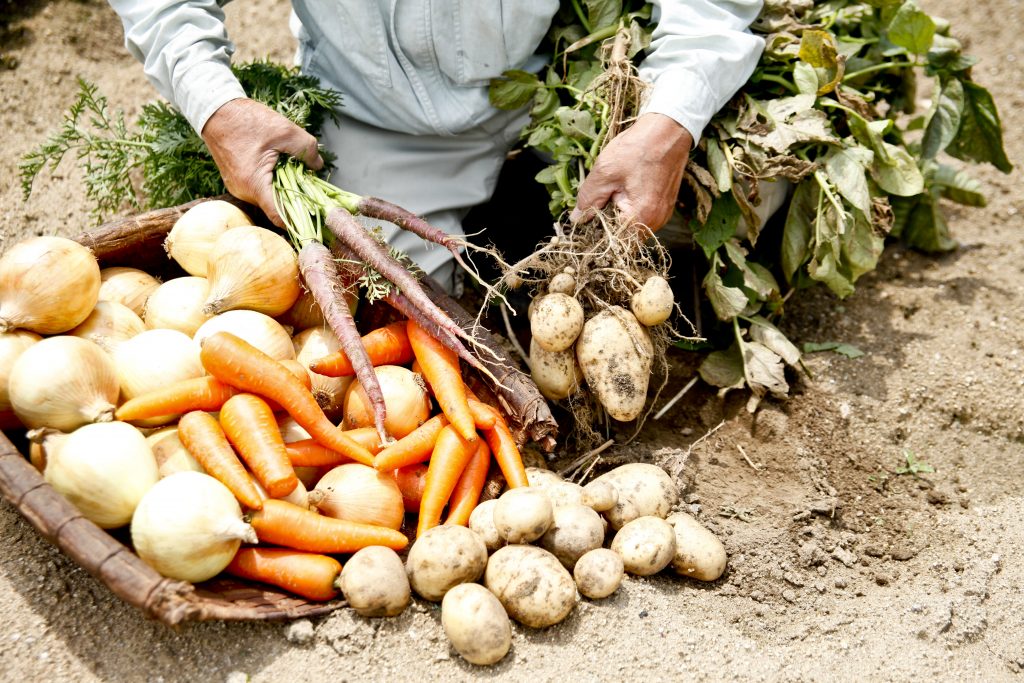
With rising home prices and increasing concern about the environment, more people than ever before are turning to homesteading as a sustainable way of living. This lifestyle involves doing things as an individual, family, or community all on your own, without the help of many modern conveniences.
People who practice homesteading typically live in more remote areas and have their own land where they grow their own food and work toward living a simpler life. Some people opt to live as a family unit only, while others join with like-minded people to go off the grid and live in a commune. In order to live a life of homesteading, it’s important to have a variety of important skills in order to survive.
- A Guide to Off-Grid Living and Self-Sufficiency
- 10 Lessons From Living Life Off the Grid
- Living Off the Grid No Longer Just for Back-to-the-Landers
- All About Homesteading
- Sustainable Living Tips to Help the Environment
For a homestead to be successful, food should be a top priority. Fertile land is important so that vegetables and other foods can be grown and harvested. Obtaining seeds, creating an effective irrigation system, and having access to clean water are musts. In addition to growing the food, it needs to be able to be preserved for future use. Canning and pickling techniques are a great way to keep vegetables fresh for longer periods of time and help prevent waste.
Building a root cellar can help keep other food items at a cool and safe temperature for storage without the use of electricity. You don’t have to be a seasoned farmer to grow your own food, but it’s important to have a working knowledge of how to grow a variety of different foods to produce a varied and healthy diet. People who practice homesteading also know that having a good cooking area with a fire pit or woodstove and understanding how to create fire easily are essential tools for cooking and heating.
- Firewood Characteristics for Heating and Cooking With Wood
- Vegetable Gardening Designs and Tips
- Fire Making Tips
- Ensuring High Quality Canned Foods
- One Family’s Story: Living Off the Grid in Wales
Those who have gone completely off the grid sometimes build or adapt their own homes. A basic knowledge of framing walls and installing roofs are skills that are absolutely essential for those who wish to build their own dwelling in a way that will last and protect its inhabitants from the elements, and it’s also important for homesteaders to take the environment into account in order to maximize energy-efficiency. Even things like making your own clothes might be necessary skills to learn if you truly want to be self-sufficient. You can use animal hides, cloth scraps, and fur pelts to hand-sew anything from pants and dresses to coats and hats. Deer sinew can make a good alternative to thread.
A true homesteader can practice a variety of self-sufficiency skills in order to promote the survival of the family or group. Even certain plants can be used for medicine and first aid purposes rather than buying manufactured medicine. For those with a lot of land, animals like horses, chickens, goats, and pigs can provide food, eggs, and transportation. Animals have always been an important contributor to the survival of humans, but it’s important to remember that they must be able to be fed and taken care of in addition to the people on the homestead.
- Tips When Buying a Small Farm
- Heating with Wood
- Grow Your Own Drugs: Natural Remedies
- Advice and Tips on Raising Chickens
- Backyard Beekeeping 101
- Tips on Caring for and Feeding Livestock
Living off the grid takes determination and a strong will to survive independently. Many who practice homesteading opt to live in a commune because they can use each person’s individual strong suits to help contribute to the survival of the group. The more people who live in a small area, the better the odds are that everyone will be taken care of. Communes can consist of a small group or a larger one depending on where the homestead is located and how many people wish to join. Most people who live in a communal homesteading environment lend their own unique skills and ideas to the betterment of the group as a whole.
- Self-Sufficiency and Sustainability
- Self-Sustaining Buildings
- Community Garden Start-Up Guide (PDF)
- USDA Small Farm Definitions and Guidelines


Are You Familiar With This Topic? Share Your Experience.